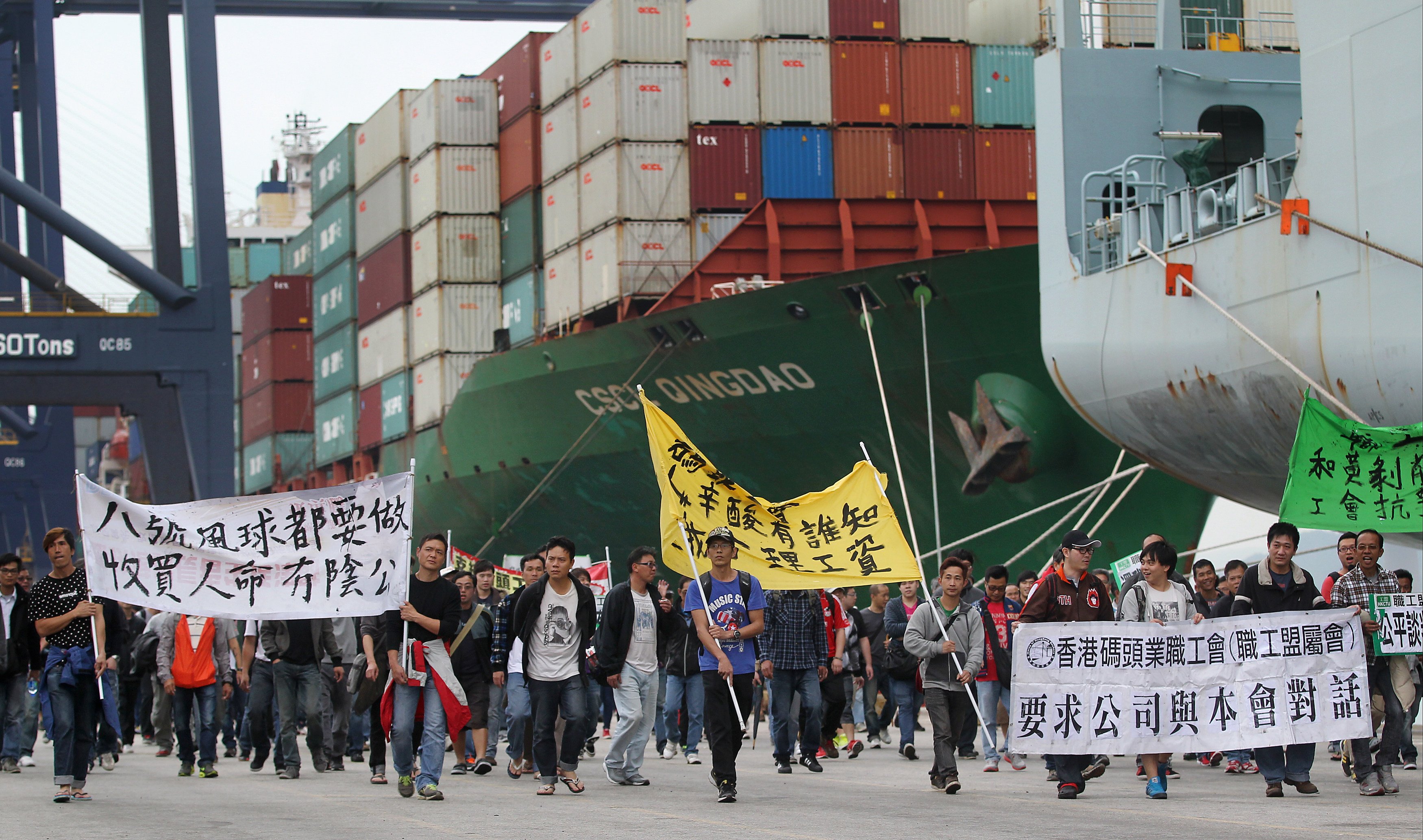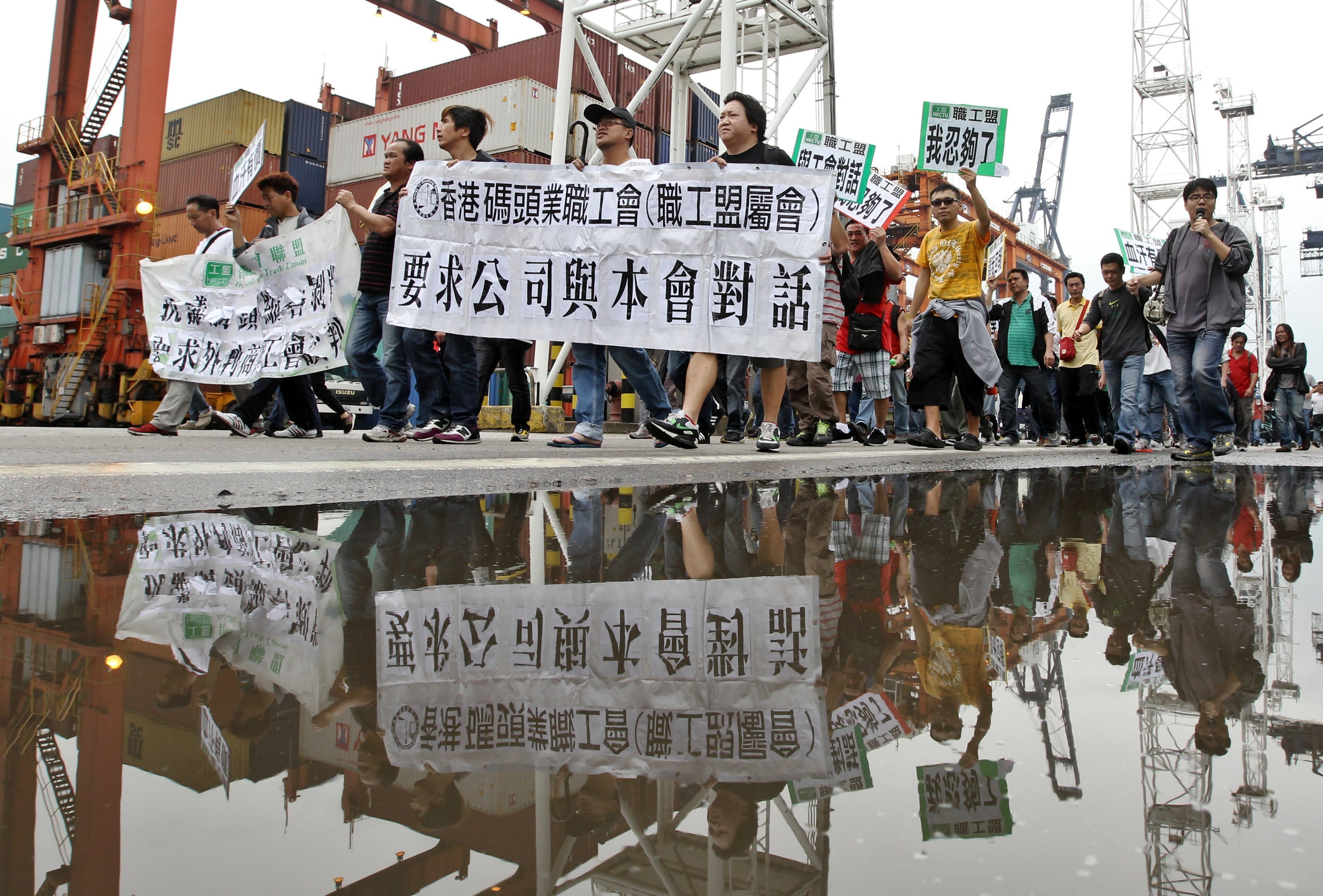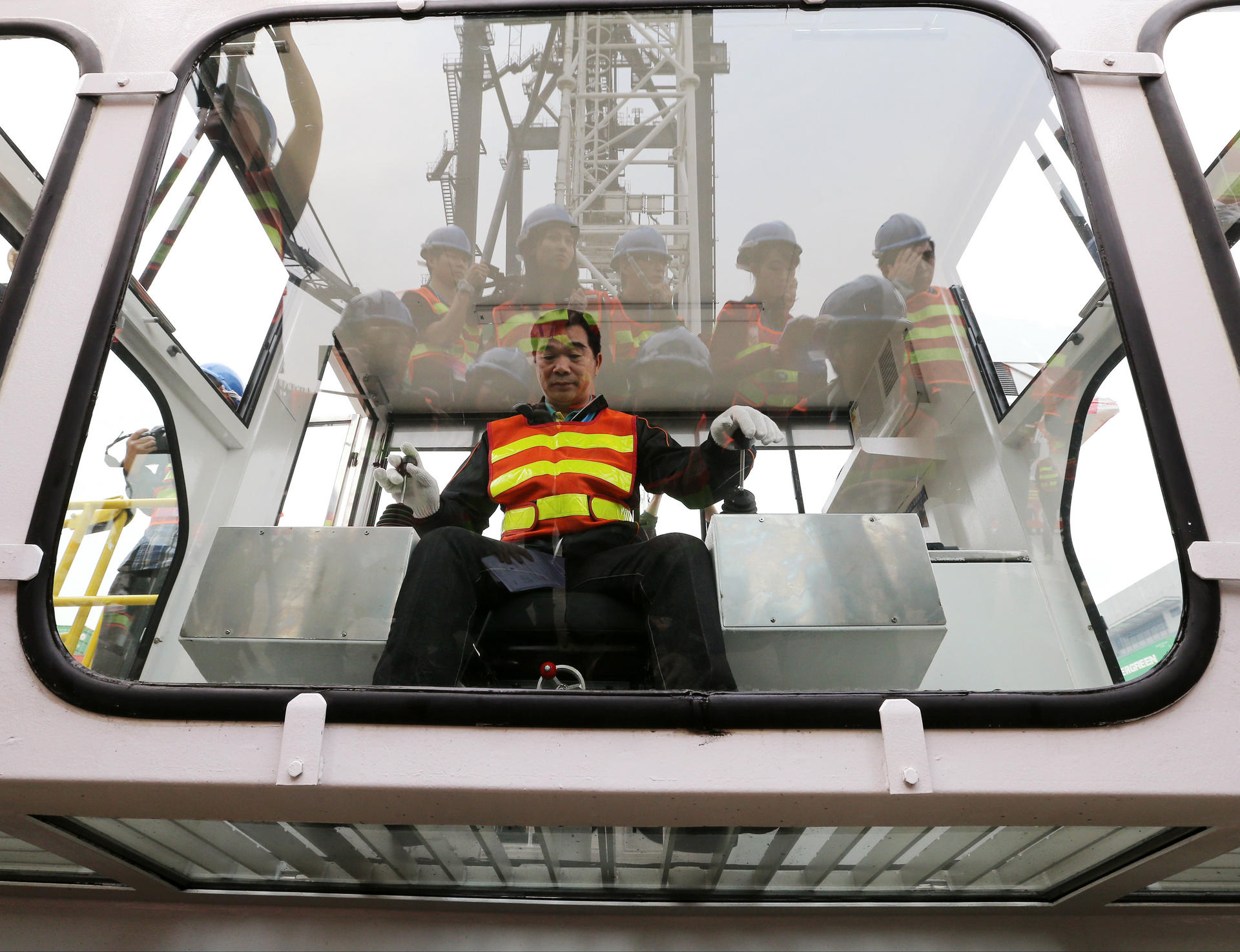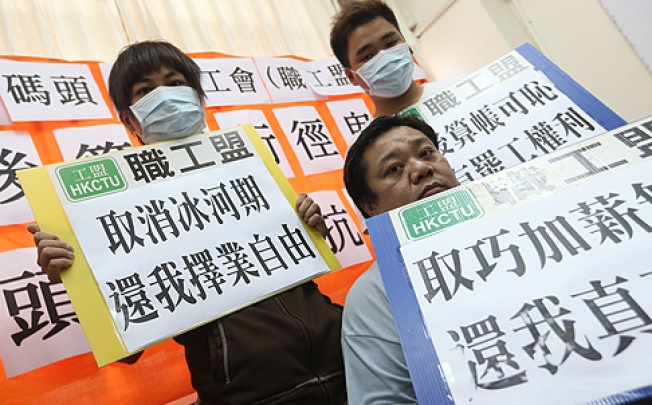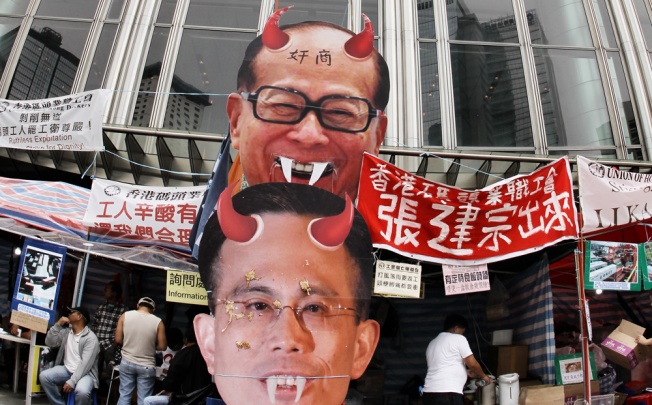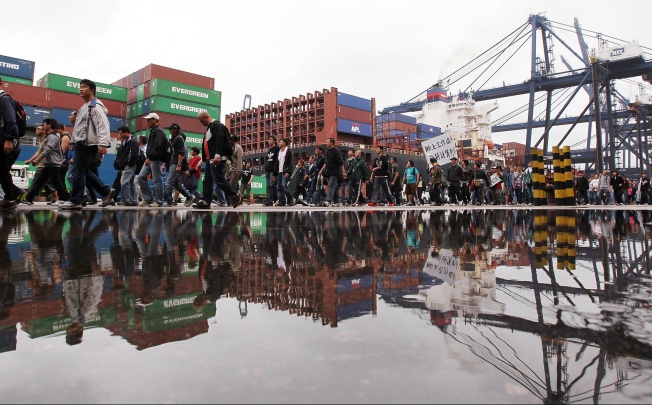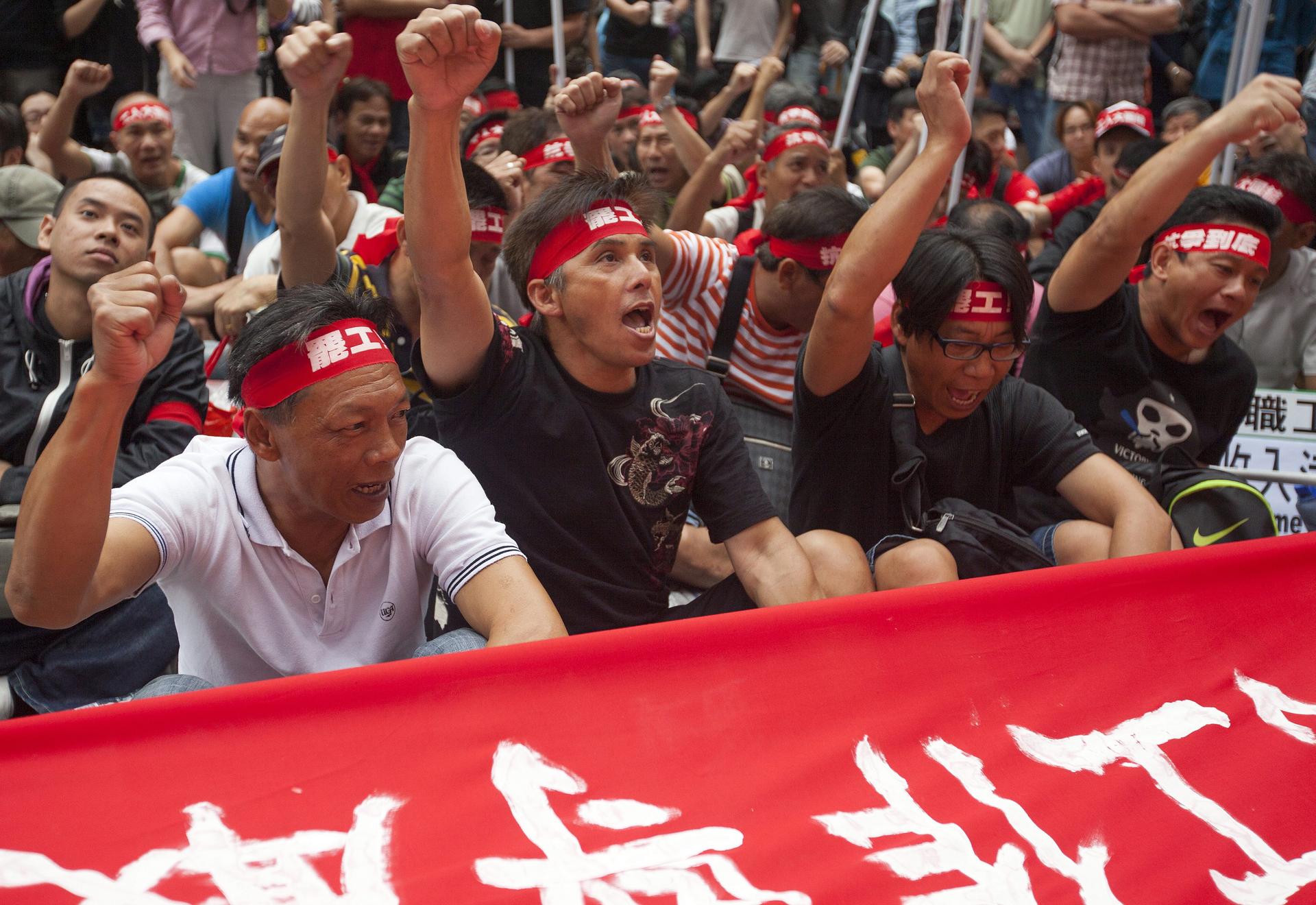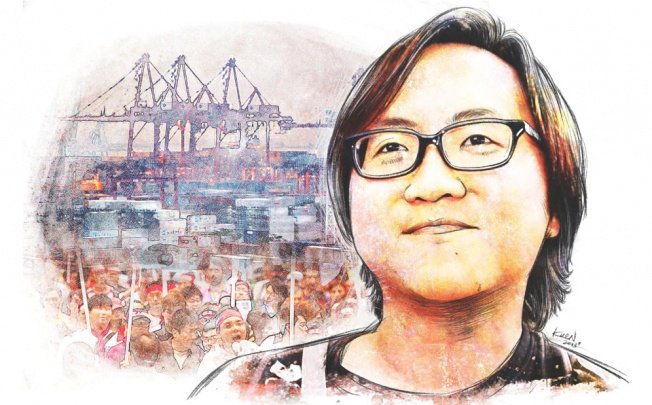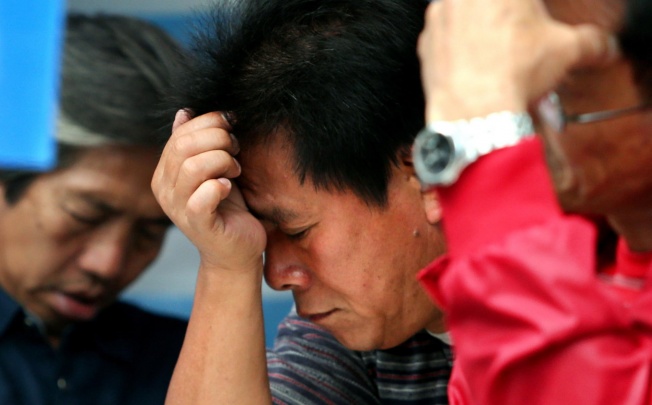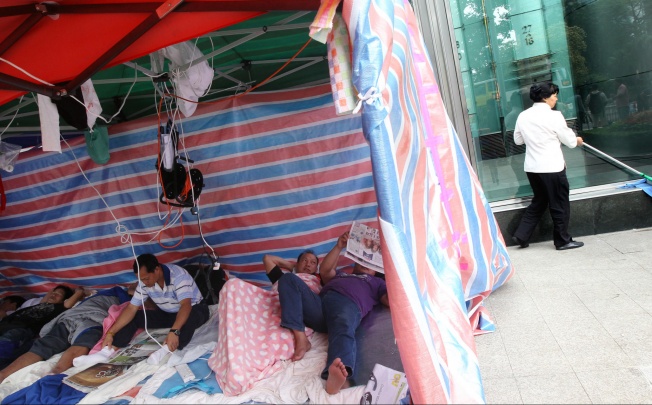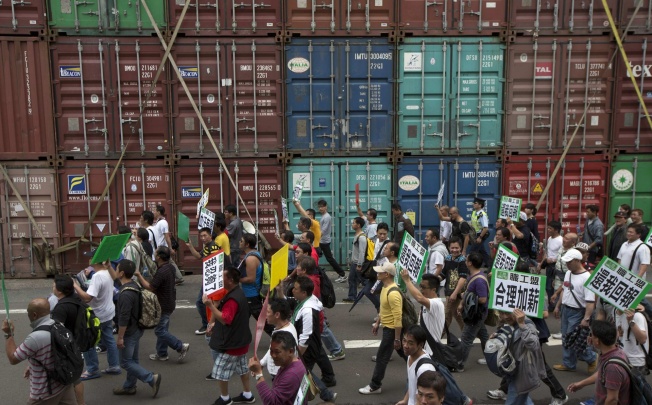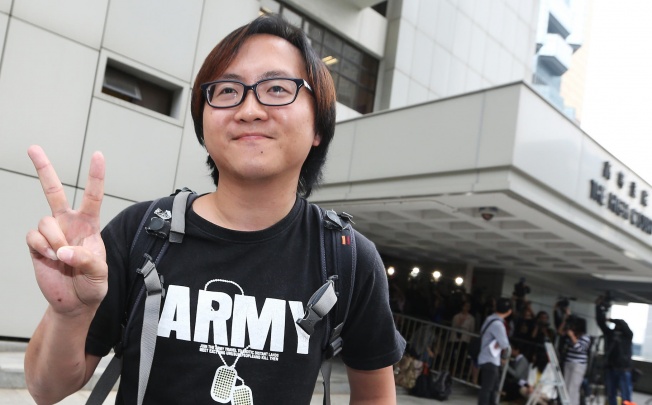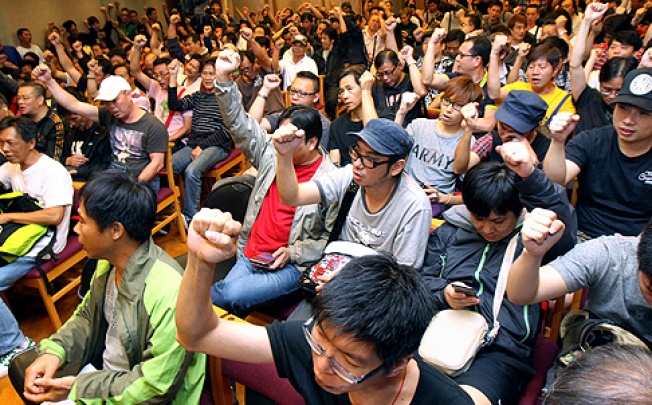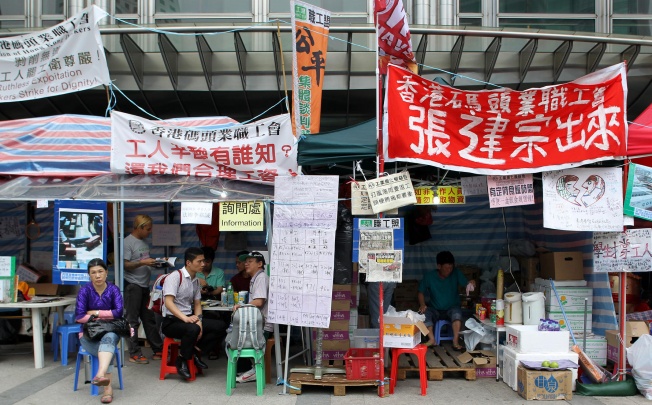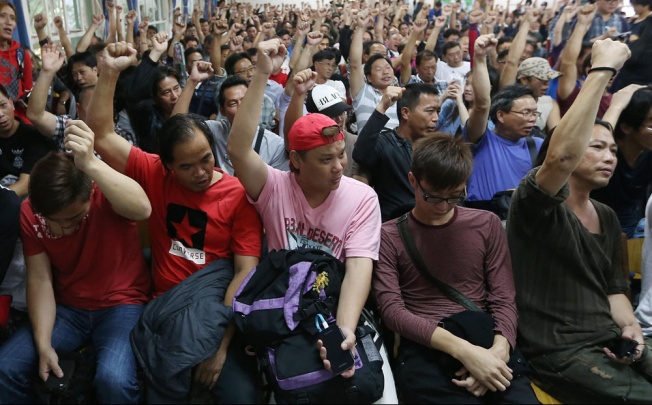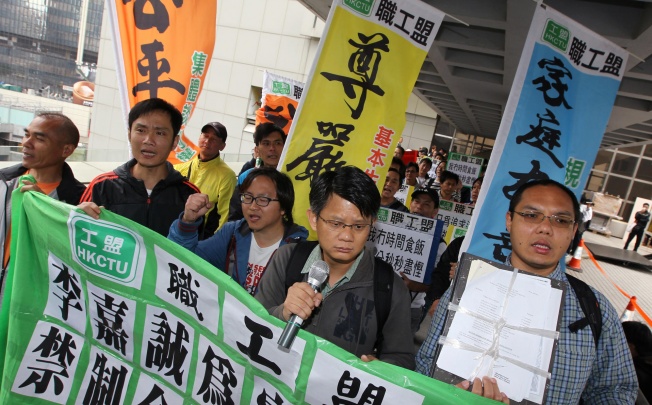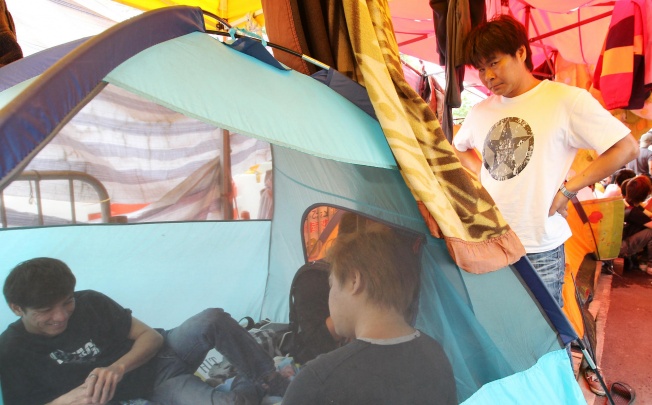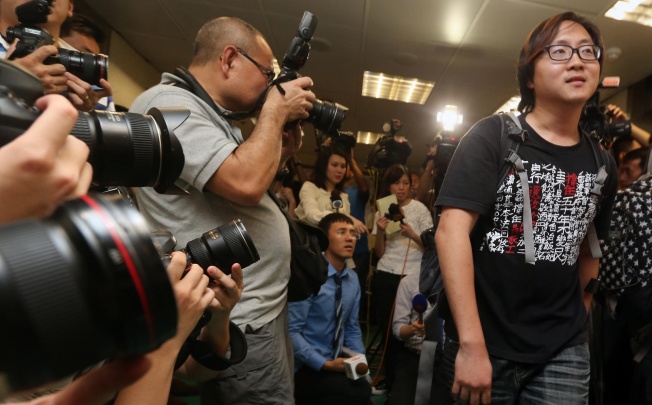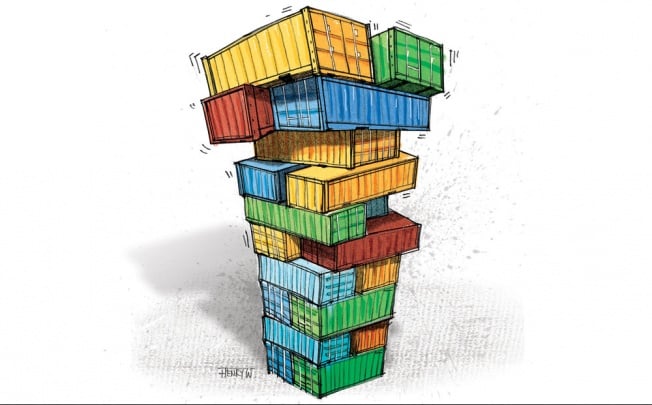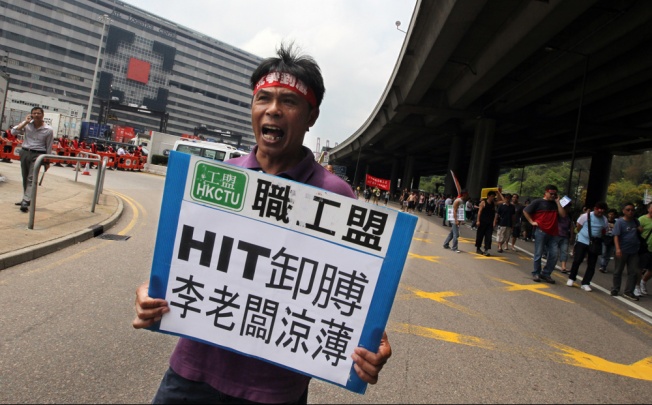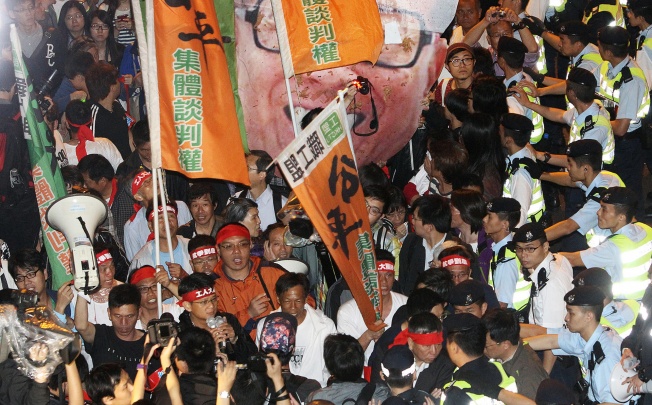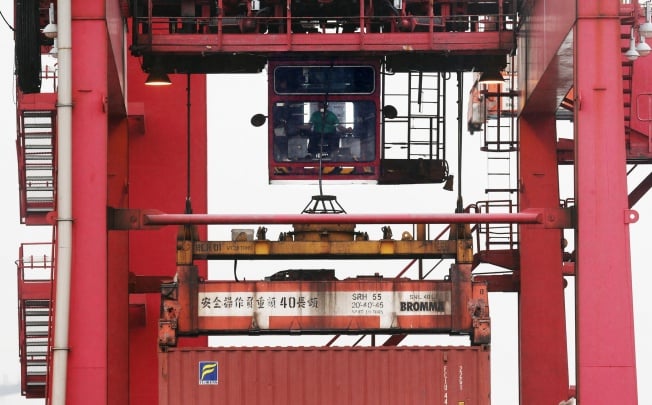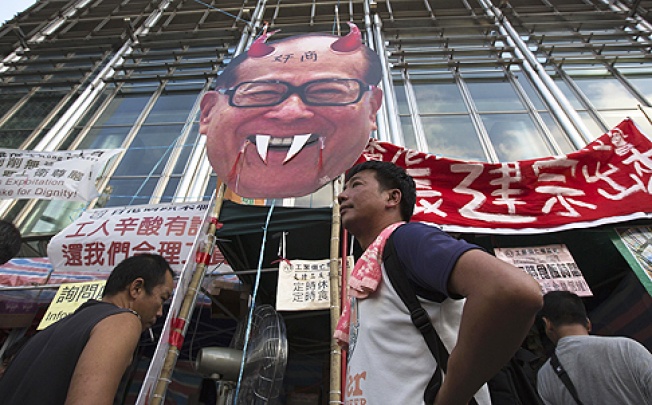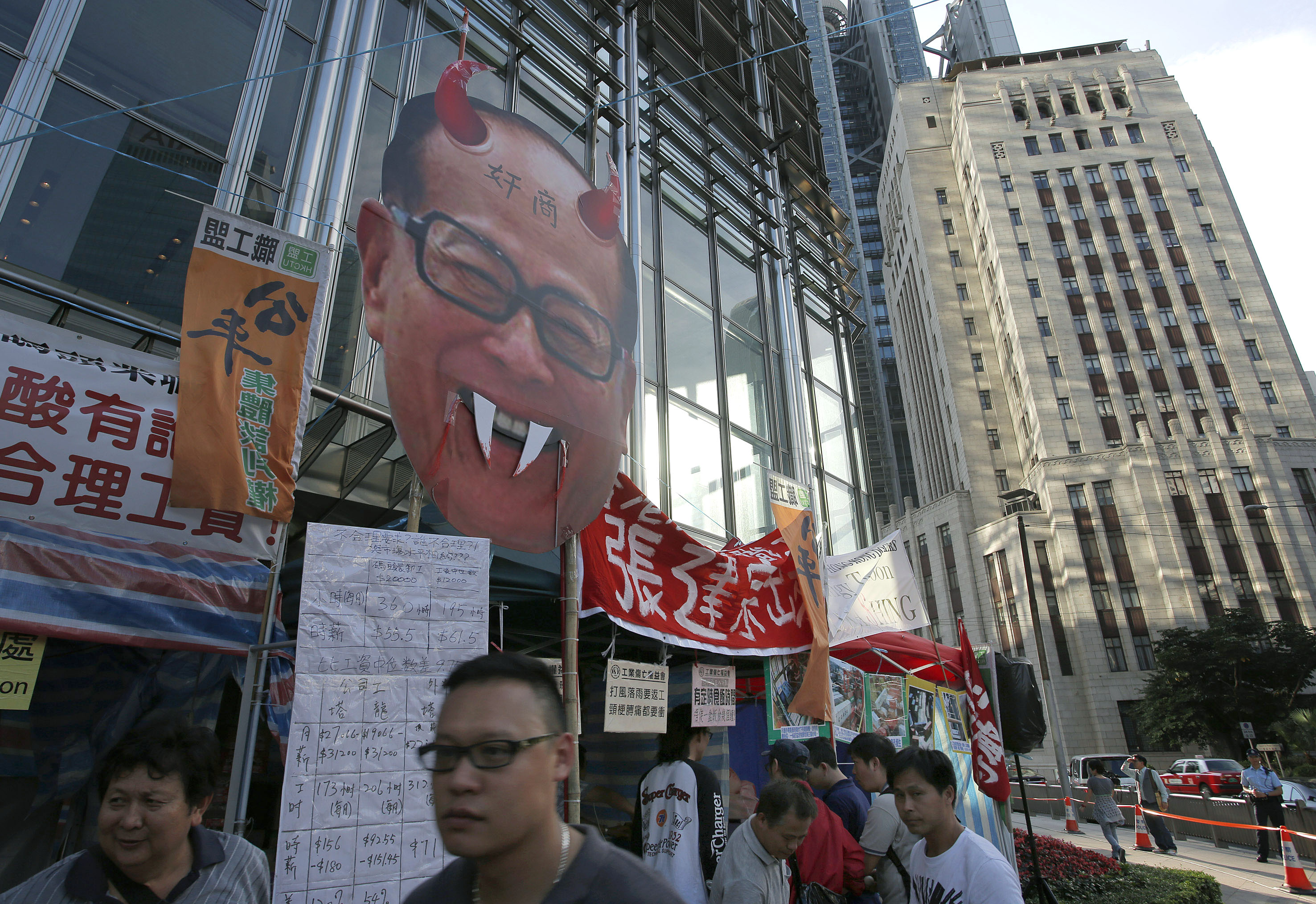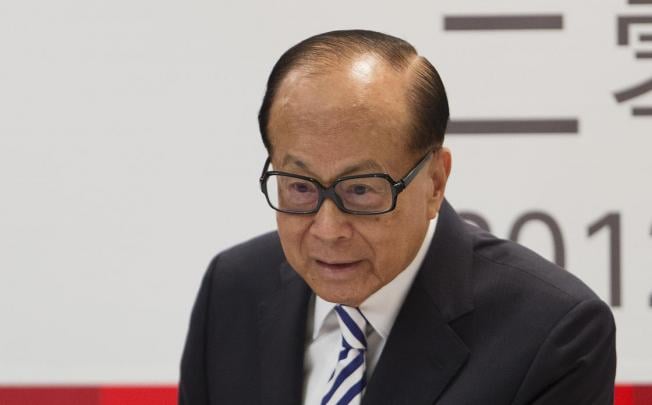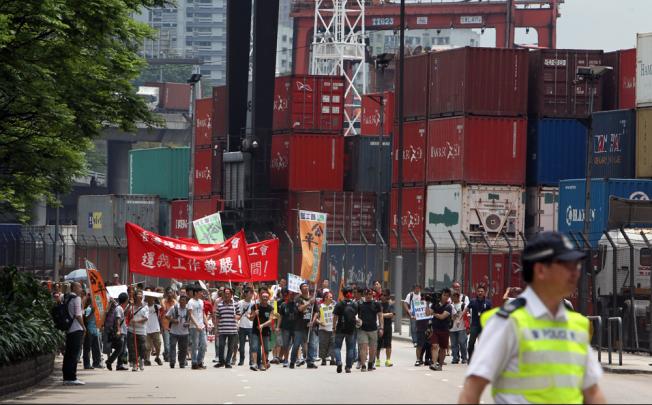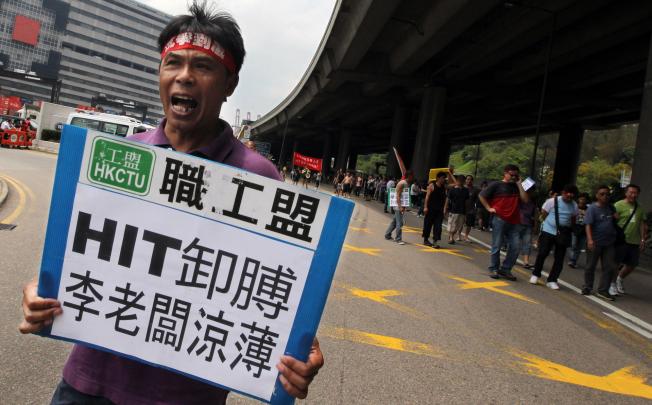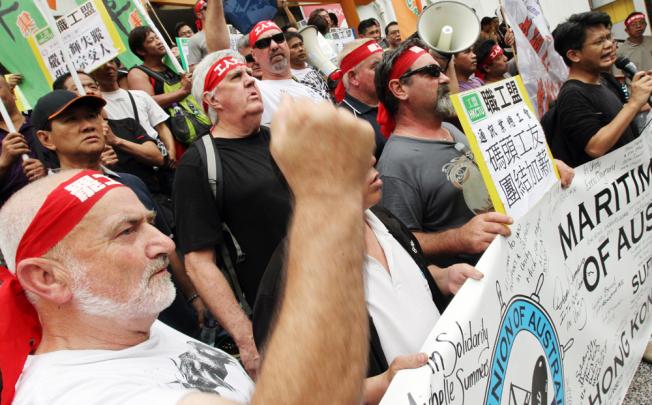Topic

On March 28, 2013, dock workers at Kwai Tsing took industrial action seeking a 17 per cent pay rise. The port is operated by Hongkong International Terminals (HIT).
Striking dockers have beaten academic Benny Tai Yiu-ting to occupy Central. And they have even picked the perfect symbol of the city's so-called property hegemony - the Cheung Kong Center at 2 Queen's Road Central.
- Critics of current political climate say clampdown after 2019 social unrest led to demise of many unions in city, with little clout for cause left in legislature
- Comments follow exhibition marking 10th anniversary of 2013 dock demonstration that rocked city
The Confederation of Trade Unions says it hopes to donate some of its assets to other workers’ rights groups. It has 1,000 students enrolled in courses as part of its work for the Employees Retraining Board.
Dock workers at Hongkong International Terminals (HIT), the port operator hit by a five-week strike over wages last year, could see their pay go up by 10.1 per cent from next month.
The city's largest port operator announced it would guarantee all dockers hired by subcontractors would get a pay rise higher than the inflation rate in the wake of last year's strike.
Three dockers have been laid off unfairly after they took part in a 40-day strike at the Kwai Tsing Container Terminals, the Union of Hong Kong Dockers claims.
The 12 per cent slide in Hong Kong's container throughput last month underpinned a structural problem exacerbated by a strike at one of the terminals last month, a port operator said.
Before March 28, few outside the shipyards of Hong Kong had heard of Stanley Ho Wai-hong. Then the dockers walked out. It was to become one of the longest strikes in the city's history, and Stanley Ho was at its helm.
The first batch of more than 300 dockers who were on strike will report back to work today, but arrangements for the remaining 108 have still to be settled.
Before March 28, they were just a bunch of contract dockers at the Kwai Tsing Container Terminals who were dissatisfied with their wages and conditions but had never made their voices heard. That day they told themselves they had had enough and walked out on strike - not realising the industrial action would last for 40 days.
No one emerged as a winner from the 40-day dockers strike, with the workers failing to get the raise they demanded and the port operator involved suffering a tarnished image, analysts said.
The decision came just hours before the Kwai Tsing port workers accepted a 9.8 per cent pay rise offered by four dock contractors and announced an end to their 40-day walkout.
The deadlock was broken when four contractors pledged to write the increase into their contracts and to improve conditions, one of the strike leaders said. Just two days ago, the strikers voted unanimously against a 9.8 per cent rise, insisting on a "double digit" increase. The salary rise will be backdated to May 1.
Some 66 per cent of the nearly 200 dockers polled in the past two days back the 9.8 per cent offer, which was made on Friday night, the Federation of Hong Kong and Kowloon Labour Unions said.
Leaders of the strike at the Kwai Tsing container terminals, now the longest in Hong Kong industrial relations history, said the offer - made on Friday - fell short of the double-digit pay rise they wanted and did not cover issues involving working conditions which are also in dispute.
The contractors - Everbest Port Services, Pui Kee Stevedore Company, Lem Wing Transportation and Comcheung Human Resources - said they would not engage in more talks over the pay dispute.
More than 80 dockers have walked off the job to join the industrial action that enters its 40th day on Monday as the fifth round of talks involving the strikers, a main contractor and the port operator ended without progress.
Emerging from seven-and-a-half hours of talks, Union of Hong Kong Dockers spokesman Stanley Ho Wai-hong accused Everbest Port Services of being insincere.
The Union of Hong Kong Dockers had insisted it would not resume talks if they were only with contractor Everbest Port Services on March 28. But union spokesman Stanley Ho Wai-hong yesterday said they were willing to go back to the negotiating table with Everbest in an attempt to break the deadlock.
The striking dockers last night made an unannounced move to mark their walkout's first month by marching to Government House, although their target, Chief Executive Leung Chun-ying, had yet to return from his Beijing trip.
While the dockers strike is costing Hongkong International Terminals a reported HK$5 million a day, the actual cost of the dispute is costing the maritime and logistics industry much more as ships and cargo are diverted to other ports.
We regret that the article ("Attack on tycoons with no conscience", April 22) helped perpetuate stereotypes at the expense of truth. The Cheung Kong and Hutchison Whampoa groups - which are firmly rooted in Hong Kong - are a corporate family of 270,000 employees across 52 nations.
Mr Justice Derek Pang Wai-cheong, sitting in the Court of First Instance, said he would not hear the application in the absence of the demonstrators because it involved a constitutional right to demonstrate and freedom of expression.
Patience is wearing thin as the strike at the container terminal has dragged on for weeks without any sign of coming to an end. Over the weekend, the situation worsened after bosses and unionists stepped up attacks against each other. The escalating tension is not just counter-productive to negotiations, it also risks provoking public anger against the rich and powerful if the consortium behind the scenes continues to stay away. Instead of trading insults through the media, the parties concerned should talk and try to compromise. The deadlock is best resolved with cool heads rather than finger pointing.





